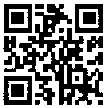 |
| Browsing reader to add vocabulary to game board |
I think the most battered & dog-eared photocopiable resource I have on the shelf here at Luna is Heinemann Children's Games by Maria Toth - back in the day teacher's resource books were few and far between (and expensive!)
 |
| Mining text for words |
Recently I wanted to find a 'new' way to exploit the reading books our children are very engaged with. Or were. Once we have 'finished' one, we seldom have the time to go back and wander through the stories again. The series we like (OUP Story Tree) does a very good job of recycling language, but I wanted to do a bit more. This is how.
The game grid is 8 x 7. Each locus/circle on the grid is connected horizontally & vertically by a line, which is the direction of travel players are allowed. In each circle contains a word. Two players take turns to throw a dice, and move their marker around the board. Each move, they circle the word on the board with a colour pencil (ie 2 different colours for the two players) and write the word down on another peice of paper/notebook. The other player cannot pass through a circle which is not their colour. The aim is to collect words to make a sentence.
 |
| Making the game - a race itself |
Simple - but not so simple as you might think! Students are not just copying...Let me explain the mechanics.
The teacher's oldest friend tippex = blank board. Ask each student in the class to choose a different book. This is an ideal exercise for end of series or term, and once the students know what to do, could be easy homework. Students are asked to leaf through their reader, and pick out words to put onto their board - anywhere they like. NB To make the game 'work', you will need to make sure there a couple of words repeated in there eg 'a', 'the', 'to'...otherwise one player will bag the key word(s) and the other player is snookered!
 |
| Playing the game |
Apart from the above proviso, let students rip into their readers. Some will want to add the 'hard' words, others their favourites. Whatever! Try to avoid duplicates. Do this in pencil, just in case you need to tweek in a couple of words to facillitate actual sentences. For example, singular and plural nouns make a nice variety. One of my students decided to use only the shortest words (it, is, a, yes, no). OK...but the other students refused to play his game. Peer review is a teachers' secret weapon :)
As each student has used a different book, you will have a quick stock of games. Write the name of the book on the board - and photocopy them. Push the boat out & laminate if you want to save for those rainy days when half the class doesn't turn up!
Initially, students will play and collect random words. Sooner or later, the penny will drop that they will need a strategy. Subliminally, this means students will want to be keenly aware of collocates eg
I've got "went", but I can't make a sentence with it unless I also have "to". One of my teens started muttering grammar words to herself (
"shugo, shugo. Ah, dai-meishi") - she was hunting for a subject and settled for a pronoun. Cool!
 |
| Game board - end of play |
As students build a list from the board, they may need a nudge to get started cobbling together sentences - some will feel they need to reconstruct a sentence from their story, for example. Once an example or two are scribbled down, students will see how, where & what they can substitute to make new sentences with the same (limited) vocabulary they have acquired - and see what else they want to grab. Word order awareness? adjective + noun combinations? verb + adverb? third person 's' on verbs or not? Without an agenda, this sweetlygives an alert teacher micro-teaching moments.
The winner might be the first student to create a whole sentence...but why not milk the exercise for all it's worth? Give a point for each word in a sentence. Bigger scores for embellishment! These were examples from a recent game (source vocab = Orange Story Tree "The Outing"):
 |
| My scribbles |
- A crocodile went to the school.
- Children went to the school.
- Children went to the crocodile.
- A crocodile went to the toilet angrily.
- Silly children buy a crocodile.
- A silly crocodile went to the museum.
By the end of a game/lesson, students will have re-read their reader once, if not several times (can't remember what words mean, go back & find them in context), and written them down at least three times. They will have deconstructed the text & rebuilt with meaning - I'm not steeped in theory but that is a lot of grammatical & lexical processing going on (voluntarilly -
I've got to win!)
 |
| Let's read some more! |
Try this at home/in your reading class. Can't claim ownership of the idea (back to Maria Toth). My students have loved this (and viewed it is a game ie not proper class)...and begged to do again.
Hmm. Have to read more books then, won't we!









No comments:
Post a Comment
By all means leave your comments - please do not be offensive, abusive, or rude. We ask you to sign your comment as well, please.